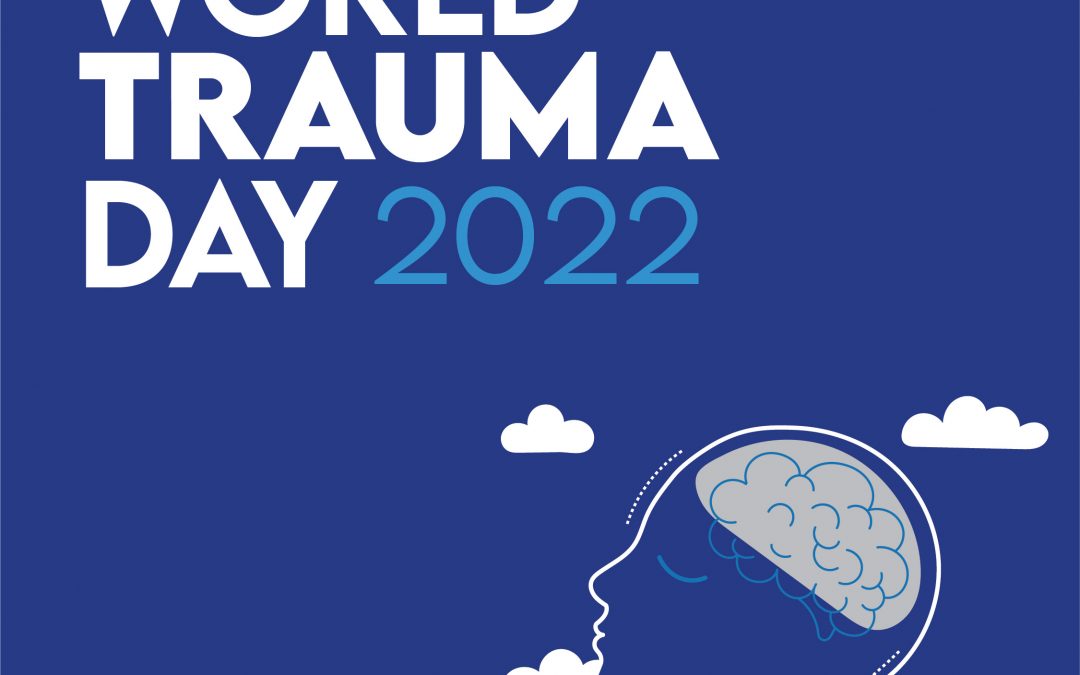“Trauma constantly confronts us with fragility and with man’s inhumanity to man, but also with our extraordinary resilience” (van der Kolk, 2014).
World Trauma Day, observed on 17 October, emphasises the need to prevent deaths and disabilities caused by accidents or trauma. It was initiated in New Delhi in 2011 to highlight the number of deaths caused by motor vehicle accidents (Sahu, 2022). The purpose of World Trauma Day lies in generating awareness on various precautionary measures and averting deaths and disabilities caused by traumatic incidents. As per a study conducted by the World Health Organization (2021), nearly half of the trauma-related deaths occurring in developing countries could have been prevented with psychoeducation programmes and effective intervention, such as:
- immediate pre-hospital care
- adequate knowledge of handling emergency situations (training of personnel)
- adequate supply of pre-hospital care equipment and facilities (enough ambulances and other medical supplies)
On commemoration of this day, we acknowledge that trauma is a major cause of preventable death and disability across the world. And whilst in the medical world, trauma is considered an event causing physical injury, we also see it pertinent to acknowledge that trauma extends beyond the notion of physical trauma to also include psychological and emotional trauma exposure.
Certainly, South Africa is one of the few countries globally that has endured protracted political violence as well as high rates of criminal violence, domestic abuse, and accidental injury. This translates into South Africans being widely and commonly confronted with primary and secondary accounts of traumatic stressors, both in their everyday lives and in the mass media. For many South Africans, the stress of living in conditions of continuous traumatisation is compounded by the chronic anxiety wrought by severe economic deprivation. The civil unrest in KwaZulu Natal and Gauteng, the COVID-19 pandemic, and the flooding in KwaZulu Natal (amongst other events) in the past year further illuminated this social inequality.
Whilst we are a traumatised nation, we are also a resilient one, with ubuntu standing as one of our nation’s strongest symbols.
My humanity is preserved though you, and yours through us.
In this sense, amidst precarious times, we encourage mutual support among community members, relatives, friends, colleagues and even strangers, Support will go a long way to bring comfort and relief to distressed individuals. Knowing that someone cares and is willing to listen to one’s experiences is a crucial feat in healing. We also call upon government to embark on meaningful efforts to address the levels of traumatisation in our country, to prioritise the safety of women and children, and to increase safety in public places – understanding social inequality and poverty as key drivers (amongst others). Further, we call on communities to normalise conversations about trauma and its effects.
As we commemorate World Trauma Day, we appeal to individuals to seek assistance if they are experiencing trauma-related symptoms for which they cannot cope. including repetitive and distressing nightmares, flashbacks and/or memories and avoidance of trauma-related thoughts. In addition, one may experience depressive symptoms including negative thoughts and assumptions about oneself or the world, guilt and blame; decreased interest in activities; feeling isolated and difficulty experiencing positive moods. Further, changes in arousal or reactivity including irritability or aggression; risky or destructive behaviour; hypervigilance; heightened startle reaction; difficulty concentrating and difficulty sleeping, may ensue.
Although it is normal to experience symptoms post trauma, if symptoms persist, or if traumatic exposure is ongoing and severely impacting your capacity to function in various domains, you may benefit from seeking professional support.
Symptoms could include repetitive and distressing nightmares, flashbacks and/or memories; avoidance of trauma-related thoughts, feelings and/or external reminders, depressive symptoms (negative thoughts and assumptions about oneself or the world; blame of self or others for causing the trauma; decreased interest in activities; feeling isolated; difficulty experiencing positive affect) as well as alterations in arousal or reactivity (irritability or aggression; risky or destructive behaviour; hypervigilance; heightened startle reaction; difficulty concentrating; difficulty sleeping). Although it is normal to experience symptoms post trauma, if symptoms persist, or if traumatic exposure is ongoing and severely impacting your capacity to function in various domains, you may benefit from seeking professional support.
Mental Health Emergency Contacts:
- The South African Depression and Anxiety Group (SADAG): 011 234 4837
- Suicide Crisis Lifeline: 080 0567 567
- Trauma Helpline: 080 020 5026
References
Sahu, V. (2022). World Trauma Day 2022: History, significance and theme. Retrieved 11 October 2022 from https://www.merazone.com/2022/10/world-trauma-day-2022-history.html
van der Kolk, B. A. (2014). The body keeps the score: Brain, mind, and body in the healing of trauma. Viking.
World Health Organisation. (2021). Injuries and violence. Retrieved 11 October 2022 from https://www.who.int/news-room/fact-sheets/detail/injuries-and-violence

